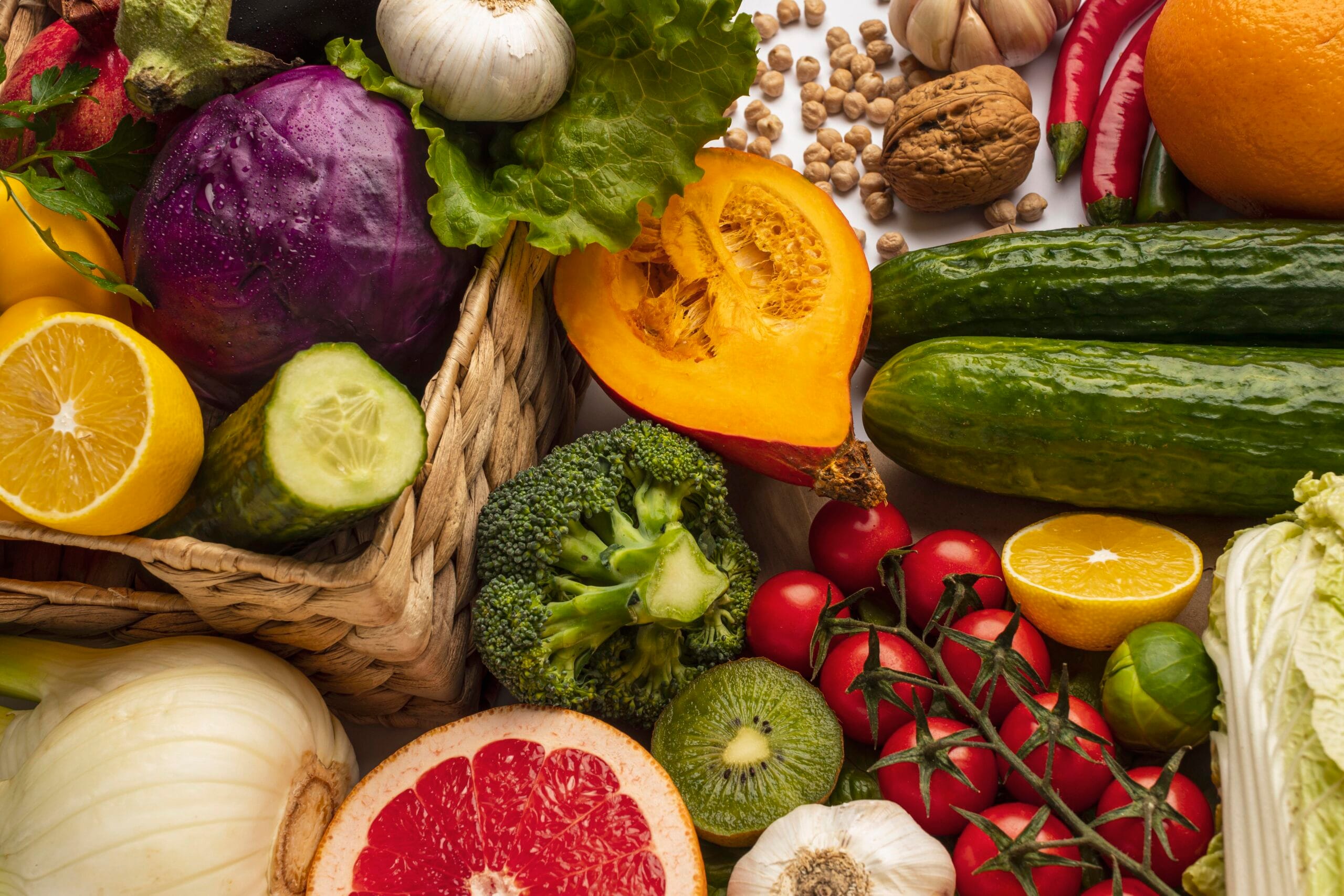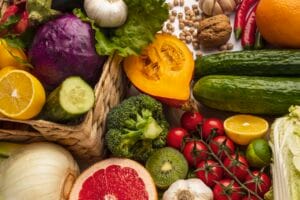
Nutrition for Stroke Prevention: 10 Foods That Support Brain and Heart Health
- Introduction
- 10 Foods That Support Brain and Heart Health
- Conclusion
Again, food is not just for consumption or delicacy sake. Food is an essential nourishment for the human body. Food may serve as medicine even while being enjoyed. Eating the right food can prevent lots of diseases, including stroke! Food is one of the stroke prevention strategies that helps prevent cardiovascular diseases. It can be traced to health conditions like diabetes, high cholesterol, obesity, and high blood pressure, which are mostly results of diet. Dietary change can impact health; therefore, choosing brain- and heart-friendly foods can help prevent and lower the risk of stroke.
Here are 10 powerful foods that can reduce the risk of stroke:

- Leafy Greens
Leafy greens are packed with essential minerals, antioxidants, and vitamins that nourish the body. Kale, broccoli, spinach, kale, arugula, and many more are filled with nutrients like folate, magnesium, and vitamin K, which aid blood flow and prevent plaque accumulation in the arteries. Most leafy greens contain high magnesium content, making them ideal for blood pressure regulation. Also, these vegetables contain nitrate, an important compound that improves flexibility in the blood vessels and blood flow, contributing to the health of the heart and brain. Incorporating these veggies into the diet can help prevent stroke and overall well-being.
2. Berries
Anthocyanins and flavonoids are powerful antioxidants that reduce oxidative stress and inflammation. Oxidative and inflammation cause damage to blood vessels and artery plaque buildup that contributes to stroke. These antioxidants are found abundantly in berries like strawberries, blueberries, and raspberries. Antioxidants are powerful compounds that prevent brain cell damage and maintain the health of blood vessels. Berries’ fibre content also helps decrease LDL cholesterol health, which improves heart health. The best way to eat berries is to add them to Greek yoghurt, pap, or snack on them instead of junk.
- Oats and Whole Grains
Oats and whole grains are another food that nourish the body and improve heart and brain health. Whole grains that are high in soluble fibre, like oats, brown rice, and whole wheat, lower cholesterol compared to their refined counterparts, which spikes up the cholesterol level. These grains are packed with vitamin B, niacin, and folate, which benefit the heart and brain. Soluble fibre found in whole grains removes excess cholesterol from the body, preventing plaque buildup in arteries. Generally, whole grains improve blood flow, leading to proper blood circulation in the body, thereby preventing strokes. For full nourishment to the body system, choose grain foods like brown rice, quinoa, and whole meals instead of processed ones.
- Fatty Fish
Fatty acids are essential nutrients that should be found in stroke-prevention diets. Mackerel, salmon, and sardines are packed with essential nutrients like omega-3 fatty acids that improve brain and heart health. Omega-3 fatty acids are anti-inflammatory and reduce blood pressure and cholesterol levels. Additionally, fatty acids prevent blood clots that cause stroke and improve brain cell communication. Incorporate fatty acid-rich food into the diet at least twice weekly.
- Nuts and Seeds
Healthy fats, minerals, fibre and protein are vital nutrients needed for stroke prevention. These nutrients prevent diseases that result in stroke, such as high blood pressure. Walnuts, flaxseeds, chia seeds, and almonds are rich in these essential nutrients. Nuts are rich in healthy fats that lower cholesterol levels instead of increasing them. Walnuts have been seen to improve blood vessel function, reducing stroke risk. Consuming nuts in the right portion can contribute to brain function and heart health, which contributes to the prevention of stroke.
- Tomatoes
Lycopene is a rich antioxidant found in tomatoes, and it reduces the risk of strokes rich in tomatoes. This antioxidant prevents oxidative stress and inflammation responsible for blood vessel damage. Lycopene promotes blood circulation by preventing clot formation and buildups in the artery. Research reveals the effect of lycopene in the blood, which helps prevent stroke. Adding tomatoes to salads, sandwiches, sauces, and many more is a rich way to absorb lycopene into the body healthily.
- Olive Oil
Olive oil is a rich oil known for its high content of monounsaturated fats. It also contains polyphenols, an active property known to improve heart health and reduce inflammation. Extra virgin olive oil reduces LDL cholesterol, thereby strengthening blood vessels in the body. Its high monounsaturated fat content helps lower the blood pressure and hinder blood clots by stimulating blood vessel flexibility. Overall, olive oil helps maintain heart health and blood flow. For optimal results, extra virgin olive oil offers the best nutrients for preventing stroke. Instead of using seed oil, extra virgin olive oil can be used for overall health.
- Avocados
Avocados are rich in healthy fats that are vital for the heart. Potassium, fibre, and healthy fats all contribute to the health of the heart, making avocados a staple food for preventing stroke. Potassium helps control blood pressure, and its fibre content manages the cholesterol level, promoting a healthy heart and proper blood circulation. Just like olive oil, avocado is also rich in monounsaturated fats that lower the LDL cholesterol. With the effect of avocado on blood pressure and cholesterol, stroke is inhibited, providing wellness in the body. Avocado is an easy-to-go food; it can also be added to salads, toasts, smoothies, and many more.
- Dark Chocolate
This might come as a shock but dark chocolate can prevent strokes. Dark chocolates are filled with at least 70% cocoa, which makes them a healthy option compared to sweet chocolates. It is filled with flavonoids and other powerful antioxidants that relieve inflammation and enhance blood vessel function. Flavonoid has a powerful effect on blood vessel performance; they aid blood flow and help prevent clots. They improve brain health through circulation and aid in oxygen delivery to brain cells, promoting proper cognitive function and heart health. It is important to always opt for chocolates instead of flavoured ones. This is to avoid negative impacts on the heart and brain health.
- Garlic
Garlic contains an ample amount of sulphur compounds known to reduce blood pressure and enhance cholesterol levels. It is a natural blood thinner that can dissolve blood clots and prevent them. Garlic improves blood circulation, reduces cholesterol levels, and prevents blood clots, all of which prevent stroke. Garlic has a pungent smell that may repel many. Adding garlic to food might help conceal the smell while offering benefits to the body. Otherwise, garlic can be enjoyed directly for improved heart and brain health.
Additional Tips:
- Hydrating adequately can improve circulation and reduce blood pressure, reducing the risk of stroke.
- It is important to reduce salt and sugar intake altogether to prevent inflammation.
- Exercise aids weight management and improves cardiovascular health. For an effective workout routine, seek approval on exercises from a doctor or physiotherapist and so on. Stroke rehabilitation exercises can also be included to restore proper blood flow to the body.
Incorporating these ten foods into the diet can help lead a healthy lifestyle free of brain and heart conditions like stroke. Investing in rich foods like fruits, vegetables, whole grains, and many more can serve as the first step to prevent stroke. Nutrients in many foods in the world can prevent lots of diseases we see in the world today. Seizing this opportunity can help improve heart and brain health, preventing stroke and other related cardiovascular diseases. Maintaining a healthy weight, proper cholesterol levels, and normal blood pressure are vital to leading a life free of stroke and worry.



